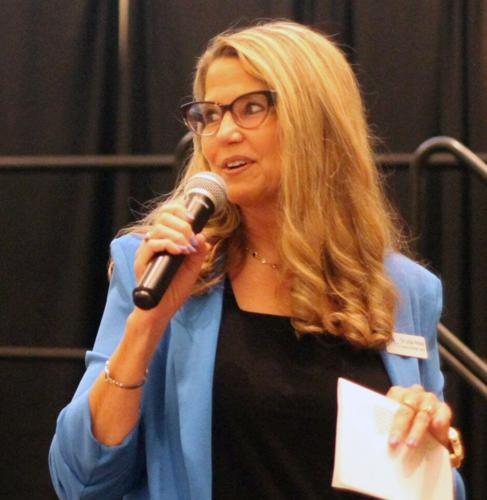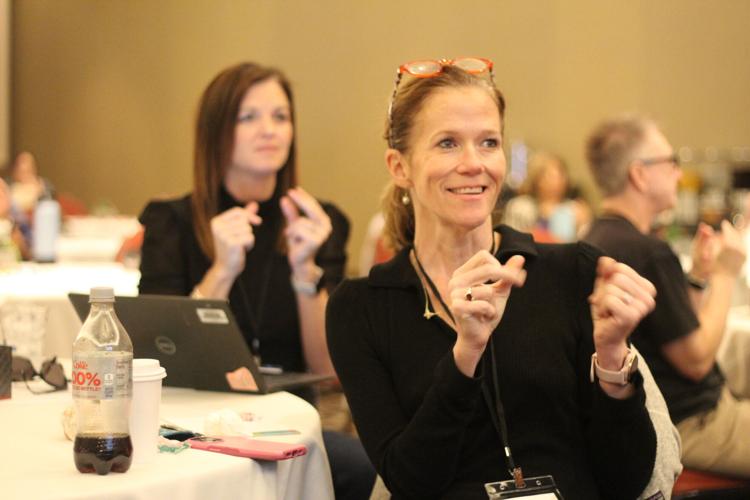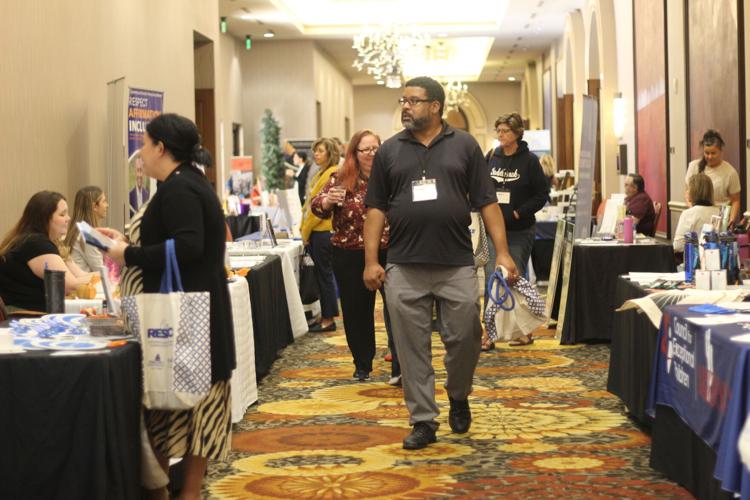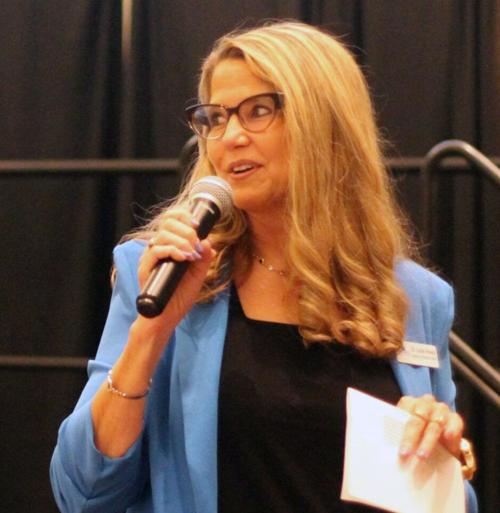Educators could benefit from pressing “pause,” says Leslie Anway, director of resilience for the Pima County Schools Superintendent’s Office.
“Our teachers, our administrators and our school mental health professionals are carrying so much on their shoulders right now,” she said. “Being able to take five minutes to regulate can mean dividends.”
It’s no secret the pandemic has affected the mental health of students, but educators are suffering, too. Since the pandemic, teachers are more “vulnerable to stress, depression, anxiety and high physical and emotional demands,” a 2022 study says. The study, “Teachers’ Mental Health and Their Involvement in Educational Inclusion,” found that teachers’ mental health has implications in the classroom.
Anway organized the first Resilience Summit.
Teachers from across Arizona came to Tucson at the end of October to learn about how to build resiliency — the capacity to withstand or bounce back quickly from challenges or difficulties.
An estimated 150 people attended. The event was geared primarily towards teachers, administrators, school mental health professionals, and community and behavioral health agencies who work with youth, she said.

Resilience Summit participants participate in one of the sessions.
A question circulating the conference was, “What is resiliency?”
A lot of educators responded that grit is the main tenet of resiliency, Anway said.
“Educators are taking on other jobs that really aren’t even their jobs,” she said. “‘You’re gonna give me one more thing? Okay, I’ll do it. I have to be on call on the weekend? Okay, I’ll do it.’
“Especially in certain districts, it’s kind of looked at like a badge of honor.”
Having a badge of honor sometimes only gets a teacher virtual hardware and burnout. “The term burnout is understood as a gradual process by which people gradually lose interest in their work and responsibilities, and can lead to deep depression,” the aforementioned study states.

Educators from across Arizona attended the first Resilience Summit, which featured speakers and vendors sharing information about social and emotional well being in education.
Other studies have indicated burnout is caused by repeated emotional and interpersonal stress on the job, and emotional exhaustion.
“I think that the way our educational system stands, it’s kind of that badge of honor thing; ‘the more I do, the more I’m going to be valued, the more I’m going to be seen as a valuable employee. So I’m going to keep taking this on to the point of burnout’,” Anway said.
Have burnout and not building resiliency led to the teacher workforce shortage?
Anway hesitated to give a definitive “yes.”
“We get all these teachers who are leaving in droves because they’re not taking time to recharge. If they can’t build their own resilience, of course they can’t help to build that of our kids.”
It’s complex, she said.
So are kids’ emotional health and student safety. Anway suggested resiliency is primarily passed to students through educators leading by example and incorporating resilience throughout lessons.
“It’s really impossible to just do academics, without any of those pieces of the social/emotional embedded. They’re in there,” Anway said. “Of course, we want parents to do this beautiful work at home, starting with that. We want that continued in the school setting.
“If we’re going to teach some of these things to our kids, they have to be able to model these things for our kids,” Anway said. “If we’re talking about things like self-awareness, growth, mindset and social awareness, then our adults have to be able to model those things.”
In the event of a traumatic event, those qualities become even more important, Anway said.
The two-day Resilience Summit included sessions on suicide prevention and education, community building, eliminating racial harassment, effective instruction and the basics of social and emotional learning.
There was time for rest and socializing, and guests specializing in resiliency and mental health.
The Resilient Schools segment of the Pima County Superintendent’s Office also offers educators offers learning opportunities throughout the year. Resilient Schools is also available for individual educators looking for assistance.
If it seems there is a lot of focus on resiliency and emotional IQ in the classroom, Anway said, there is a reason — many reasons, in fact: students.
“Those of us that are immersed in it, we get it so well that it’s hard to understand why people outside of education don’t get it. I can speak to that because my husband owns a business. And he’s outside of the world of education. I’ll say teaching is incredibly stressful and what they are carrying, and he says, ‘Well, so is HR or something’.
“Yes, it is. But if you’re carrying the lives of children also, and you take that home … Are they all doing okay? There are all these little lives that are in your hand, so that there’s that extra layer that’s always there, that you’re always worrying about.”







